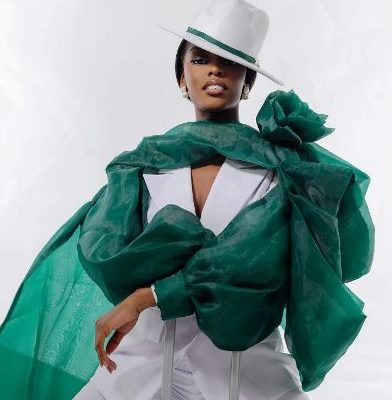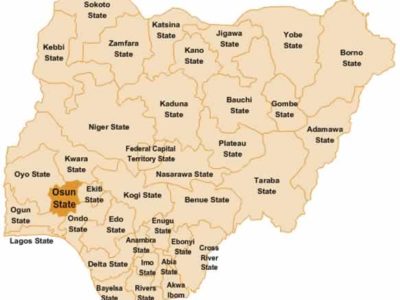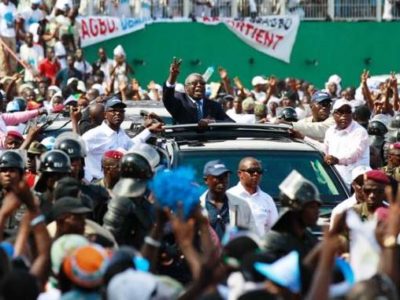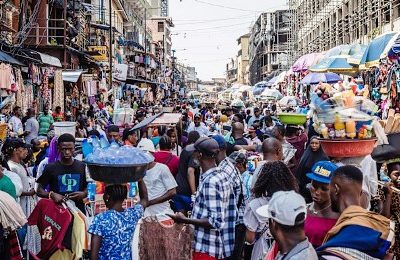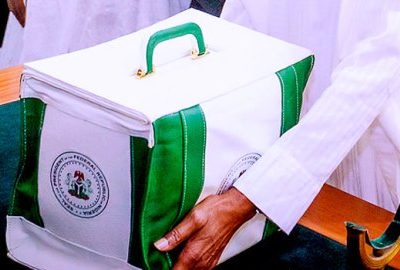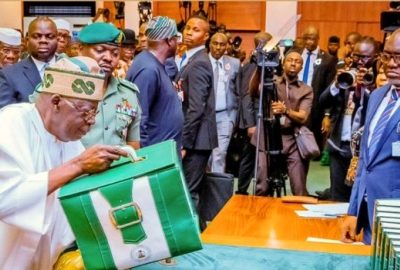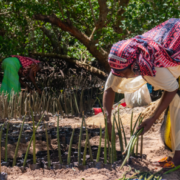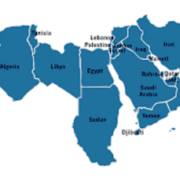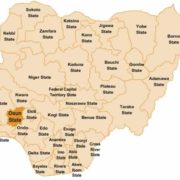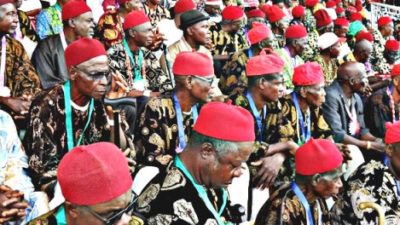By Dr Agu Collins Agu
In recent years, South Africa has faced a troubling rise in xenophobic sentiment, particularly targeting Black Africans from other parts of the continent.
This mindset, unfortunately, mirrors a pattern of self-division and internalized oppression that persists even decades after the end of apartheid.
Chidimma Adetshina’s experience as a Black African woman who initially aimed to represent South Africa in the Miss Universe competition, only to be rejected and labeled “not South African enough” by her peers, illustrates the painful legacy of apartheid and its psychological impact on South African society.
After her rejection in South Africa, Chidimma was welcomed by Nigeria, her home country, to represent Nigeria on the international stage.
South Africa and deeper issues of Stockholm syndrome
However, the backlash she faced in South Africa highlights deeper issues related to Stockholm syndrome, where the oppressed come to sympathize with or adopt the views of their oppressors.
This phenomenon has, in turn, fueled xenophobic attitudes against other Black Africans, revealing the ways in which apartheid’s legacy has scarred the psyche of South Africa.
Apartheid’s Lingering Influence on South African Identity and Xenophobia
Apartheid, the legally enforced system of racial segregation in South Africa from 1948 to the early 1990s, imposed severe racial divisions, placing Black South Africans at the bottom of a social hierarchy controlled by a white minority.
Black communities were systematically oppressed, with limited access to resources, opportunities, and basic human rights.
This institutionalized discrimination fostered not only economic inequality but also a fractured sense of identity and self-worth among many Black South Africans.
Afrophobia and fractured legacy of Apartheid
Even after apartheid’s official end, its ideological remnants lingered, creating divisions among South Africans and fostering a culture of suspicion and competition over limited resources.
Today, xenophobia against other African nationals in South Africa—often called “Afrophobia”—can be traced to this fractured legacy.
Black South Africans, still grappling with economic hardship and internalized oppression, may redirect their frustrations toward Black African immigrants rather than the historical systems and structures that initially marginalized them.
This is a tragic echo of apartheid’s divisions, where the same oppressive mindset now manifests as hostility between African nationals.
Stockholm Syndrome and Internalized Oppression
In psychological terms, Stockholm syndrome describes a paradoxical phenomenon where individuals subjected to prolonged oppression or control develop positive feelings or loyalties toward their oppressors.
This syndrome has a particular resonance in post-apartheid South Africa, where internalized oppression manifests as a form of Stockholm syndrome.
Years of subjugation under apartheid conditioned many South Africans to view other Black Africans with suspicion, while still associating whiteness with authority or desirability—a perspective implanted by the apartheid regime.
Chidimma’s experience speaks to this dynamic. Although she shared a common African identity with Black South Africans, she was seen as an outsider, her “foreignness” emphasized by Black South Africans rather than being embraced as a fellow African.
A lingering bias within South Africa’s cultural psyche
Ironically, a white South African, embodying traits historically privileged under apartheid, was ultimately selected to represent the country at Miss Universe. This decision highlights a lingering bias within South Africa’s cultural psyche—a bias that subconsciously aligns with apartheid’s racial hierarchy.
The xenophobic behavior of some South Africans references a scene from the film Django unchained, where Django played by Jamie Foxx was to stay in the big house at candyland.
The “big house” is the main mansion on the plantation, which symbolizes the wealth and power of slaveholders.
In Django Unchained, Samuel L. Jackson’s character, Stephen, is the head house slave and one of the most complex figures in the story.
Django Unchained and internalized oppression
Stephen has served Calvin Candie loyally for years, and his position in the “big house” grants him a certain level of authority and privilege over other enslaved people.
He is fiercely loyal to his master, deeply invested in the plantation’s hierarchy, and conditioned to see himself as separate from the field slaves.
This loyalty and sense of power make Stephen’s character a tragic representation of the internalized oppression that can emerge within a deeply racist system.
When Django arrives at Candyland and is given permission by Candie to stay in the “big house,” Stephen immediately resents and opposes the arrangement.
To him, Django represents a major threat to the social order that he upholds. Django is a Black man who is not only free but also assertive, educated, and willing to confront the system that enslaves others.
Stephen likely sees Django as a disruptor to his carefully maintained position within Candyland, which hinges on his absolute obedience and loyalty to Candie.
Stephen’s opposition is rooted in a few key reasons
1. Fear of Losing Status and Control: Stephen has achieved a position of relative privilege by aligning himself with Candie and the values of the white supremacist society around him.
Django’s presence in the big house disrupts the status quo, potentially undermining Stephen’s authority over the enslaved people on the plantation.
Django is a free man, and Stephen’s sense of superiority—however distorted—depends on him being above other Black people within the strict hierarchy of the plantation.
2. Internalized Racism and Self-Preservation: Stephen has adopted the mindset of his oppressors, believing in the strict racial hierarchy that places enslaved Black people at the bottom.
To him, Django’s independence and his status as a free man are offensive and destabilizing. Stephen’s survival and comfort have been tied to appeasing Candie and the system that enslaves him, so he may see Django’s defiance as not only rebellious but dangerous, threatening the tenuous security he’s built within the plantation.
3. A Symbolic Rejection of Freedom: Stephen’s fierce loyalty to the white ruling class highlights a psychological dimension of his character: he has rejected the idea of freedom for himself and others around him.
In opposing Django, Stephen reinforces his own choice to remain loyal to a system that dehumanizes him, preferring the security of his current position over the unknowns of freedom. Django, as a free and assertive man, embodies a path Stephen has denied or fears.
Protecting an oppressive social order
Ultimately, Stephen’s opposition to Django staying in the big house is an expression of his need to protect the oppressive social order he has come to rely on.
Django’s presence threatens to expose and unravel the harsh truths of Stephen’s chosen loyalty, revealing the tragic cost of his complicity in the brutal system of slavery.
This conflict between Django and Stephen reflects the complex dynamics of power and loyalty in a racially stratified society, showing how oppression can lead to divisions even among those who are equally oppressed.
Further underscoring the Stockholm Syndrome, which is a psychological phenomenon in which hostages or individuals in abusive, oppressive situations develop positive feelings or even loyalty toward their captors or abusers.
This response is thought to be a survival mechanism, as victims try to empathize with or appease their captors to reduce harm, gain favor, or make the traumatic situation feel more manageable.
In the context of Django Unchained, Stephen’s character embodies a form of Stockholm syndrome.
Attachment to slave masters
As the head house slave, Stephen has developed a strong loyalty and attachment to his master, Calvin Candie, despite being enslaved and oppressed by him.
This attachment has led him to internalize Candie’s worldview and align himself with the plantation’s brutal hierarchy.
Stephen’s loyalty goes so far that he actively opposes Django’s presence and status in the “big house,” as he sees Django’s independence as a threat to his own sense of security and power within that system.
Stephen’s loyalty to Candie, and his opposition to Django, illustrates how prolonged exposure to oppressive conditions can lead individuals to adopt the values of their oppressors, even defending a system that harms them and others like them.
His behavior is a tragic example of Stockholm syndrome, where the need for survival and security has overridden his awareness of his own exploitation and led him to protect the very system that keeps him enslaved.
The Need for a Unified African Identity
Chidimma’s rejection reflects a broader issue facing Africa: the need to break free from the divisive legacy of colonialism and apartheid.
Until African nations and their citizens fully confront and dismantle these ingrained biases, true unity remains elusive.
Chidimma’s journey—her initial rejection by South Africa, and her subsequent embrace by Nigeria—underscores the need for African countries to recognize and support one another beyond borders, as they share a common history and common future.
Chidimma: From divisive ideologies to a more inclusive African identity
In celebrating Chidimma as Nigeria’s representative, there’s an opportunity to shift away from divisive ideologies and work toward a more inclusive African identity.
This is a step toward healing the wounds inflicted by apartheid, recognizing that while colonial powers attempted to divide and control, African unity holds the potential for progress, resilience, and empowerment on the global stage.
Chidimma’s story brings to light the complex dynamics of identity, unity, and the persistent impact of apartheid on the minds and lives of Black South Africans.
The xenophobic attitudes she encountered reflect the internalized divisions perpetuated by a regime long since abolished yet whose psychological chains linger.
To move forward, South Africa—and Africa as a whole—must acknowledge and address these lingering effects, embracing unity and resisting divisive impulses.
Only by confronting these painful remnants of the past can African nations work together to build a stronger, united future.
Dr Agu Collins Agu, Founder/Chief Digital Architect,, TD4PAI Hardtech Hub, Nigeria.

